Four years after his move to Hong Kong Sean Dix’s design studio is thriving. Habitusliving editor Lorenzo Logi met with him on a recent trip to Australia to hear his thoughts on the rise of Chinese design.
July 2nd, 2012
“The idea that Chinese quality is bad is absolutely comical” says Dix, speaking of his experiences with Chinese manufacturers. “It’s not that Chinese quality is bad, it’s that the retailer, the distributor who wants cheap stuff – their quality is bad. You pay a nickel you get a nickel, you get what you pay for.”
Dix’s entry into China has been a learning experience, not just navigating the expected obstacles of language and bureaucracy but adjusting to the Chinese business culture; “it does get a little bit easier but its always complicated” he says, “also culturally it’s difficult, not just practically, because you can’t get mad – you’re not allowed – you get mad and everything falls apart. So you have to be pretty calm and tolerate a lot of irritation that you wouldn’t tolerate anywhere else and slowly things start to go in the direction you want. You can’t force anything; you force it and it falls apart.”
In this regard the Kansas-born, Pacific-island raised designer benefits from his somewhat itinerant upbringing; with a father who worked in the US Peace Corps the family moved frequently and Dix learned to adapt quickly to new environments. And especially for somewhere like China, being on the ground is paramount: ”People aren’t willing to make the commitment and they tend to really underestimate how difficult it is”, comments Dix, ”you can’t really work in China unless you’re there”.
As much as his own studio has enjoyed a relatively unique position of combining international design expertise with an almost native relationship with the manufacturing process, Dix predicts that before long the Chinese themselves will be exporting high quality, Chinese-designed products to the rest of the world. “Chinese manufacturers have been quietly producing OEM stuff for big western brands for 20 years, and what’s really interesting is that they’ve gained a lot of skills and they understand very, very well the production, the logistics, even the distribution”, he points out. “All these guys almost with out exception are thinking ‘hey wait a minute, why are we doing this when we could be developing our own brands and building our own empires?’… and so you’re going to see in the next five or ten years an explosion of very, very strong Chinese brands”.
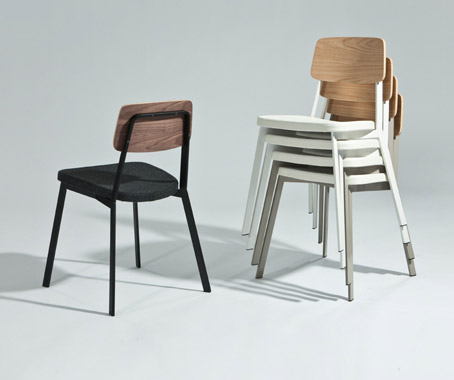
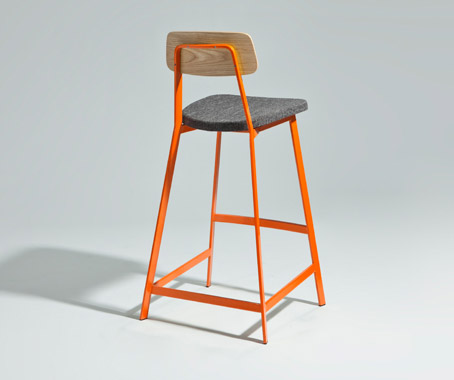
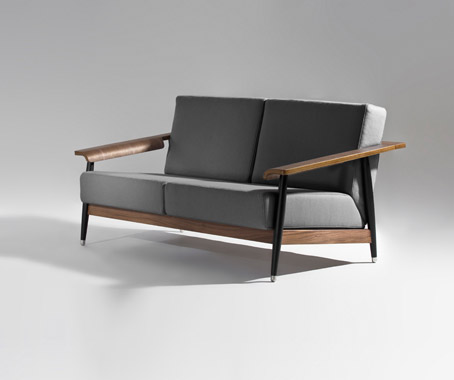
Sean Dix’s latest range of furniture includes the Sprint chair, Sprint stool, and Dowel Loveseat sofa.
The Sean Dix brand is available in Australia exclusively from Zenith Interiors.
INDESIGN is on instagram
Follow @indesignlive
A searchable and comprehensive guide for specifying leading products and their suppliers
Keep up to date with the latest and greatest from our industry BFF's!
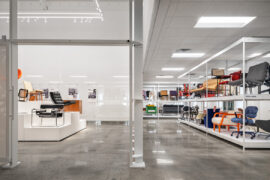
The undeniable thread connecting Herman Miller and Knoll’s design legacies across the decades now finds its profound physical embodiment at MillerKnoll’s new Design Yard Archives.
The new range features slabs with warm, earthy palettes that lend a sense of organic luxury to every space.

How can design empower the individual in a workplace transforming from a place to an activity? Here, Design Director Joel Sampson reveals how prioritising human needs – including agency, privacy, pause and connection – and leveraging responsive spatial solutions like the Herman Miller Bay Work Pod is key to crafting engaging and radically inclusive hybrid environments.
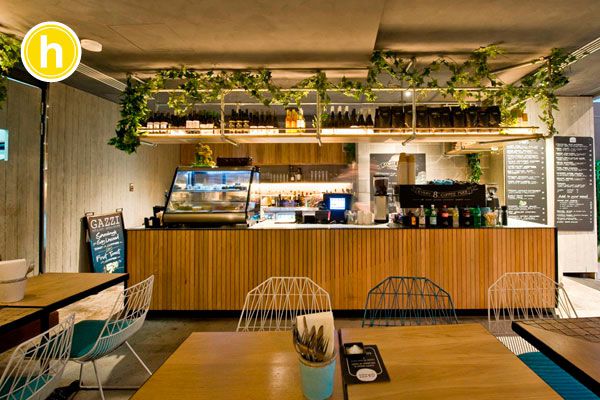
Multi-faceted creative practice De Simone Design has recently completed a Sydney café design inspired by the Athens suburb of Gazzi.
The internet never sleeps! Here's the stuff you might have missed
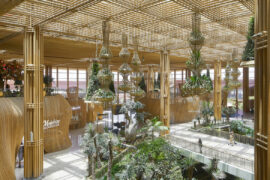
Winner of the INDE.Awards 2025 Best of the Best, Terminal 2 Kempegowda International Airport Interiors by Enter Projects Asia and SOM showcases 12,000-square-metres of biophilic design, featuring nine kilometres of handwoven rattan in a sustainable, world-class passenger experience.
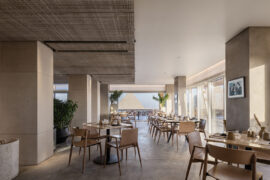
Pedrali’s Nemea collection, designed by Cazzaniga Mandelli Pagliarulo, marks 10 years of refined presence in hospitality and commercial spaces around the world. With its sculptural timber form and enduring versatility, Nemea proves that timeless design is never out of place.